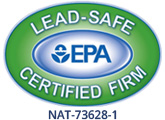How Water Softening Can Affect Your Plumbing
 Water quality is not uniform across the country. Certain regions of the US may experience “hard water”, which contains above average amounts of minerals and calcium.
Water quality is not uniform across the country. Certain regions of the US may experience “hard water”, which contains above average amounts of minerals and calcium.
These levels can affect your pipes, resulting in mineral deposits, scaling and eventual damage to the metal. Beyond the pipes, any appliance using water from your plumbing system will also be affected.
You may take a shower, only to wind up with dry, irritated skin or have trouble fully washing shampoo from your hair. Your dishwasher or washing machine may also not clean fully, resulting in stains or a grimy texture.
Water softening is one solution to decrease water hardness. If you live in an area with hard water, here’s what you should know about installing a water softener and its potential effects on your home plumbing system.
What Is a Water Softener?
Water becomes hard when it contains over one grain of calcium, magnesium and other minerals per gallon. A water softener works to reduce the amount of minerals passing through your faucets and into appliances.
This influences how a water softener interacts with your home’s plumbing system. Once installed, a water softener chemically filters out these minerals. Plastic particles and salt neutralize the magnesium and calcium, preventing them from migrating through and gathering in your pipes.
How a Water Softener Can Improve Your Plumbing
Living in a region with hard water, you may regularly contend with plumbing damage – especially if your residence is equipped with steel pipes. This arrangement can have a multifaceted effect:
- Lower quantities of calcium and magnesium improve the taste and scent of the water.
- Softer water tends to be gentler on your skin and clothing.
- Your home’s pipes are less likely to experience damage, as smaller quantities of minerals accumulate in your pipes.
- Water flow may improve, as mineral deposits are not narrowing the diameter and the pipes are less likely to freeze.
- You’ll see fewer mineral deposits on metal fixtures, such as spigots, faucets and shower heads.
- If you have a furnace or boiler, you start using less water to heat your home while extending the lifespan of your appliances.
- Your clothes and dishes get cleaner, as the soap can properly disperse and circulate. You may also find you need to use less soap.
- Your boiler is less likely to experience clogs, as the water pH is better suited to the appliance.
Concerns About Using a Water Softener
While water softeners may help reduce mineral deposits, they have potential to negatively affect your plumbing:
- Septic System: Any salt gathered from the water softener will pass through the septic tank during a process called regeneration. This has potential to throw off the septic system’s bacteria levels and decrease its overall lifespan.
- Environmental Concerns: Higher levels of salt, chloride and magnesium pass from your home through the sewer pipe. As a result, the local water system can be bombarded with a higher level of pollutants that can’t always be efficiently filtered out.
- Salty Water: While softened water is safe to drink, the sodium used to remove the excess levels of minerals may result in water from the tap tasting slightly saltier.
Are you thinking about installing a water softener to reduce the effects of hard water on your home’s plumbing system? MJ Fahy & Sons can provide assistance. To learn more about our services, contact us today.




